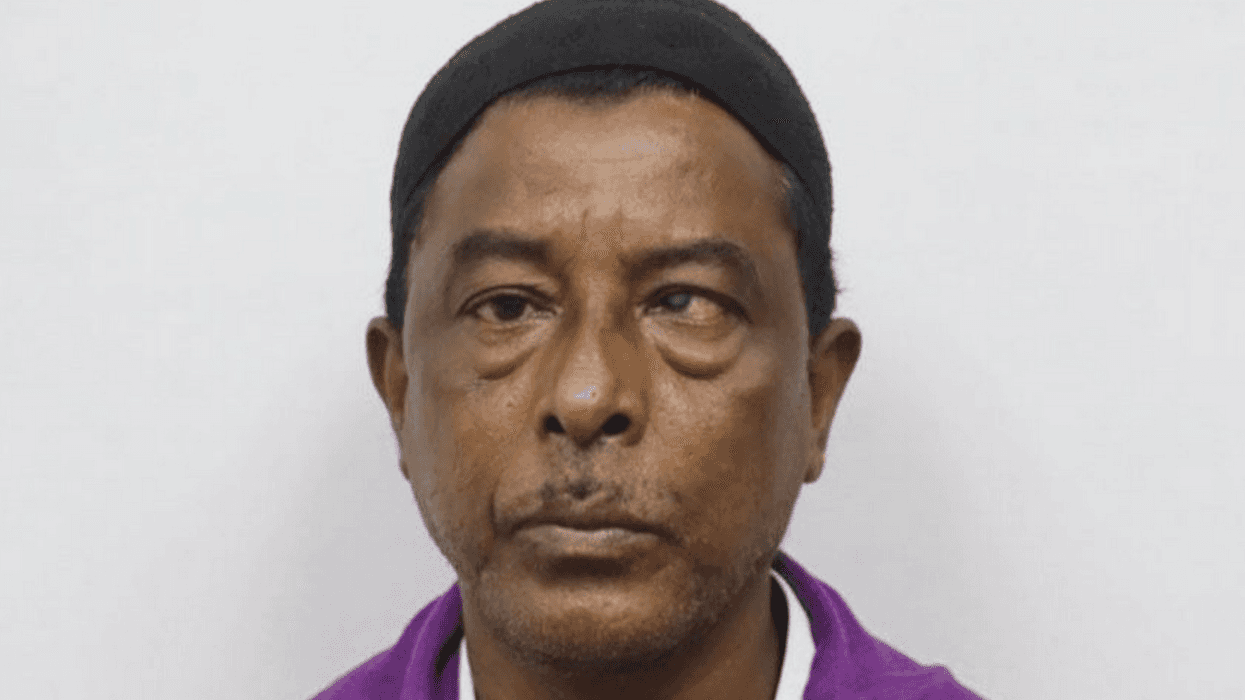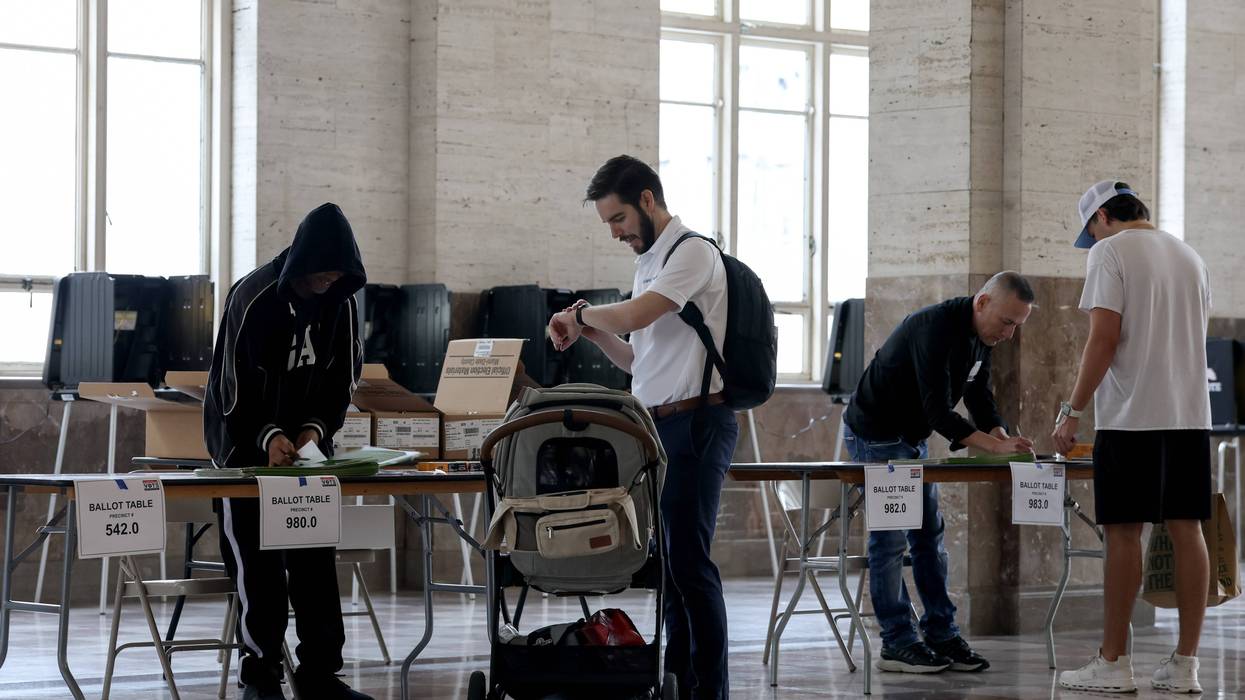September, 23 2021, 11:02am EDT

For Immediate Release
Contact:
Janessa Sambola-Harris, The Leadership Conference on Civil and Human Rights, sambolaharris@
Lacy Crawford, Lawyers’ Committee for Civil Rights Under Law, lcrawford@
Angelo Greco, National Coalition on Black Civic Participation, angelo@
Civil Rights Organizations Respond to Congressional Failure on Policing Reform
WASHINGTON
Leading civil rights organizations released the following joint statement after bipartisan negotiations around the George Floyd Justice in Policing Act were ended:
"It is absolutely unacceptable that more than a year after George Floyd was killed and millions took to the streets worldwide to demand an end to police brutality and the systemic criminalization of Black and Brown communities, congressional leaders failed to deliver meaningful legislation that would begin to address this nation's longstanding history of violent, discriminatory policing. The determination and commitment of Senator Cory Booker and Congresswoman Karen Bass to work across the aisle to reach a consensus on this critical civil rights legislation are much appreciated.
"In the 2020 election, voters came out in record numbers to support candidates who promised meaningful police accountability. We urge leaders at all levels of government, especially the 117th Congress and the Biden administration, to find pathways to advance policy measures that will hold law enforcement accountable for misconduct and transform policing practices and policies. We will continue to fight and advocate for legislation worthy of George Floyd's name. That must include measures to end qualified immunity; prohibit racial profiling; strengthen the ability of the Department of Justice to bring criminal civil rights actions against officers; create a national registry of police misconduct complaints; end the transfer of military-grade equipment to state and local law enforcement; and restrict funds from law enforcement agencies that do not prohibit the use of chokeholds and other restrictive maneuvers.
"To meet this moment, we demand transformative change that will keep our families and communities safe and end the systemic racism that permeates our criminal legal system."
This statement was signed by the following organizations:
Wade Henderson, interim president and CEO, The Leadership Conference on Civil and Human Rights
Damon Hewitt, president and executive director, Lawyers' Committee for Civil Rights Under Law
Derrick Johnson, president and CEO, National Association for the Advancement of Colored People
Sherrilyn Ifill, president and director-counsel, NAACP Legal Defense and Educational Fund (LDF)
Reverend Al Sharpton, president and founder, National Action Network
Melanie Campbell, president and CEO, The National Coalition on Black Civic Participation, The Black Women's Roundtable
Johnetta Betsch Cole, national chair and president, National Council of Negro Women
Marc H. Morial, president and CEO, National Urban League
The Lawyers' Committee is a nonpartisan, nonprofit organization, formed in 1963 at the request of President John F. Kennedy to enlist the private bar's leadership and resources in combating racial discrimination and the resulting inequality of opportunity - work that continues to be vital today.
(202) 662-8600LATEST NEWS
Nearly Blind Rohingya Refugee Found Dead After Being Stranded by Border Patrol in Freezing Cold
"There must be a full investigation and real accountability from US Customs and Border Protection," said one lawmaker.
Feb 26, 2026
The latest chapter in what one historian called "the ongoing horror story of American immigration enforcement" unfolded in Buffalo, New York this week after Nurul Amin Shah Alam, a 56-year-old Rohingya refugee from Myanmar, was released from a county jail where he'd been held for a year.
As Buffalo-based outlet the Investigative Post reported Wednesday, the nearly blind man was found dead on Tuesday evening, five days after US Border Patrol agents who had picked him up from the jail dropped him off at a coffee shop. They neglected to inform his lawyer or family where he was, making it impossible for Shah Alam to find his way home in sub-freezing temperatures.
Shah Alam, who was blind in one eye and had partial, blurry vision in the other, had gotten lost one day in February 2025 and ended up on a woman's porch with a curtain rod he used as a walking stick.
The woman called the police, who ordered Shah Alam to drop his "weapon"—the walking stick—and then Tasered, beat, and arrested him.
Shah Alam, who could not speak English and did not understand the police officers' orders, was charged with assault, trespassing, and possession of a weapon and taken to Erie County Holding Center.
His family, which includes a wife and two sons, chose not to bail him out of the county jail. His arrest had come a month into President Donald Trump's second term, and they feared US Immigration and Customs Enforcement would detain him if he was released and send him to a detention center out of state.
Benjamin Macaluso, an attorney with Legal Aid Bureau who was representing Shah Alam, told the Investigative Post that he had been released on bail last week after reaching a deal with the Erie County District Attorney’s office, agreeing to plead guilty to trespassing and possession of a weapon. The agreement allowed him to avoid detention by federal immigration agents even though authorities had previously placed an immigration detainer on Shah Alam.
Despite that, the Erie County Sheriff’s Office contacted US Border Patrol to pick Shah Alam up from the Holding Center. When the agents determined Shah Alam was not eligible for immigration detention, Border Patrol told the Investigative Post, they "offered him a courtesy ride, which he chose to accept to a coffee shop.”
An agency spokesperson claimed the nearly blind man "showed no signs of distress, mobility issues, or disabilities requiring special assistance."
Mohamad Faisal, one of Shah Alam's two sons, told Al Jazeera that his father was not able to read, write, or use electronic devices.
Macaluso told the Investigative Post that Shah Alam's family spent days searching for him in the cold before his body was found. The lawyer also said he had expected Shah Alam to be taken to an ICE detention center in Batavia, New York to be released.
A spokesperson for City Hall in Buffalo told the Investigative Post that homicide detectives were "investigating the circumstances and timeframe of events leading up to his death, following his release from custody," but said homicide and exposure to the elements had been ruled out as the cause of death by a medical examiner.
US Rep. Grace Meng (D-NY) was among those who called for a "full investigation" into Border Patrol's decision to leave Shah Alam miles from his home despite his disability.
Buffalo Mayor Sean Ryan, a Democrat, accused US Customs and Border Protection, which oversees Border Patrol, of a "dereliction of duty" and said the agency's treatment of Shah Alam was "inhumane."
"US Customs and Border Protection must answer for how and why this happened," said Ryan. "Buffalo is a city that welcomes refugees and believes government should protect human dignity, not endanger it. US Customs and Border Protection failed that basic standard."
Chuck Park, a Democrat who is running for Congress in New York's 6th District, said the New York for All Act, which would prohibit state and local law enforcement from collaborating with federal immigration agencies, would have prevented the sheriff's office from calling Border Patrol upon Shah Alam's release.
Alexandre Burgos of the New York State Hate and Bias Prevention Unit invited community members to a gathering to demand accountability to Shah Alam's death.
"We are coming together to demand accountability and transparency in the case of Nurul Amin Shah Alam," reads a flyer for the event, scheduled for Thursday evening at 5:30 pm Eastern at Lafayette High School in Buffalo.
Keep ReadingShow Less
Cuba Says Men on Florida Boat 'Intended to Carry Out an Infiltration for Terrorist Purposes'
The Cuban Interior Ministry said it detained seven people involved in the plot, including one who "had allegedly been sent from the United States to facilitate the landing and reception of the armed group."
Feb 26, 2026
The Cuban government said Wednesday that the men on a Florida-registered boat who opened fire on Cuban soldiers in the island's territorial waters were bent on carrying out "an infiltration for terrorist purposes."
In a statement following news that Cuban forces had killed four people on the boat, the besieged Caribbean nation's Interior Ministry said the vessel was carrying 10 men, all "Cuban nationals residing in the United States."
The ministry said it seized assault rifles, explosives, body armor, and other items from the boat and identified seven of its passengers, six of whom were detained. Four men on the boat—which, according to reports, was last purchased in 2022—were killed in the gunfight with Cuban soldiers, who had reportedly "approached the vessel for identification."
Cuban authorities also said another individual, Duniel Hernández Santos, was arrested "within national territory." The Interior Ministry said Santos "had allegedly been sent from the United States to facilitate the landing and reception of the armed group and has confessed to his role."
"The investigation remains ongoing until all facts have been fully established," the ministry said.
Participants in Foiled Armed Infiltration in Villa Clara Identified
As part of the ongoing investigation into the armed attack against a patrol vessel of the Border Guard Troops of the Ministry of the Interior, in the northeastern area of the El Pino channel, at Cayo Falcones,… pic.twitter.com/s9IFmUkqvk
— Cuban Embassy in US (@EmbaCubaUS) February 26, 2026
The deadly incident came as Cuba continued to reel from the Trump administration's recent intensification of decades-long economic warfare against the island. The administration is "actively seeking regime change in Cuba," according to Wall Street Journal reporting from last month.
Wednesday's incident called to the minds of observers past efforts, backed by the US, to topple the Cuban government, from the failed Bay of Pigs invasion to Operation Mongoose.
US Secretary of State Marco Rubio, the son of Cuban immigrants, denied that any American government personnel were involved in the incident and said it was under investigation.
"We're going to find out exactly what happened here, and then we'll respond accordingly," said Rubio, a longtime supporter of regime change in Cuba. "It is highly unusual to see shootouts in open sea like that. It's not something that happens every day. It's something, frankly, that hasn't happened with Cuba in a very long time."
Keep ReadingShow Less
Florida Republicans Ripped for Advancing Show-Me-Your-Papers Voter ID Bill
"This wave of anti-voter legislation is advancing amid ongoing abuses of power that pose unprecedented threats to American democracy," said the ACLU of Florida's executive director.
Feb 25, 2026
With 251 days until the US general election, Florida Republicans on Wednesday passed a show-me-your-papers bill that opponents warn could prevent thousands of eligible state voters from registering if they don't have a valid birth certificate or passport, or their documents don't reflect a name change.
"Midterm elections are coming later this year—and they're a crucial test of our democracy," ACLU of Florida executive director Bacardi Jackson said in a Wednesday statement. "Moments like this bring new voters into the process and give communities the power to hold leaders accountable—exactly what a healthy democracy demands. But right now, some lawmakers are pushing an anti-voter bill that could shut thousands of eligible people out of our elections and discourage the enrollment of new eligible voters."
The Florida House of Representatives on Wednesday voted 83-31 on HB 991, sponsored by Rep. Jenna Persons-Mulicka (R-78).
"The Florida House version of the bill would only go into effect in January 2027. But under a similar bill set for consideration in the Florida Senate, the new rules would take effect this July, before the November midterm elections," Democracy Docket detailed. "A House committee already gave preliminary approval to the bill earlier this month."
Jackson highlighted that "many eligible voters don't have ready access to an unexpired passport or an original or certified copy of their birth certificate because of logistical and financial barriers. More than 8 million Floridians do not have a valid passport, and because many women legally change their name upon marriage, more than 4.7 million women in Florida do not have a birth certificate reflecting their current legal name—documents this bill would require."
"At the same time, this proposal would eliminate current, valid forms of ID proving eligibility at the polls, including student IDs, retirement center IDs, and public assistance IDs," she warned. "Taken together, these changes are not neutral or harmless—they would fall hardest on low-income voters, students, seniors, women, and Black and brown Floridians."
The ACLU leader also argued that "context matters. This wave of anti-voter legislation is advancing amid ongoing abuses of power that pose unprecedented threats to American democracy." She specifically pointed to the Safeguard American Voter Eligibility (SAVE) America Act that the GOP-controlled US House of Representatives passed earlier this month.
"We're seeing parallel efforts nationally to make it harder for eligible voters to cast their ballots—including the SAVE Act being debated in Congress right now—and Florida is leading the way down this authoritarian path," she said. The federal bill is less likely to get through the US Senate, whose filibuster rule requires the GOP to get some Democratic support to advance most legislation.
"What makes this even more galling is that lawmakers don't have to do any of this at all—they are choosing to," said Jackson. "They could enact reforms making it easier for eligible Floridians to vote and have their voices be heard, like the Harry T. and Harriette V. Moore Florida Voting Rights Act, HB 1419/SB 1598. Instead, they are fast-tracking legislation that would make voting harder for eligible Floridians and silence communities that deserve to be heard."
"We will not stand by while politicians in power seek to entrench their power at the expense of the people's rights," she vowed. "We will keep organizing and fighting to reclaim and defend our democracy—because every eligible Floridian deserves to vote."
Meanwhile, at the federal level, Senate Majority Leader John Thune (R-SD) plans to hold a vote on the SAVE America Act this week. President Donald Trump used his State of the Union address on Tuesday night to increase pressure on Congress to send the bill to his desk.
"I'm asking you to approve the SAVE America Act to stop illegal aliens and others who are unpermitted persons from voting in our sacred American elections—that cheating is rampant in our elections," Trump said. "It's very simple: All voters must show voter ID. All voters must show proof of citizenship in order to vote. And no more crooked mail-in ballots except for illness, disability, military, or travel. None."
Experts have long countered such GOP claims by emphasizing that, as the Brennan Center for Justice put it in a pair of blog posts, "noncitizen voting is already illegal" and "extensive research reveals that fraud is very rare."
Michelle Kanter Cohen, policy director and senior counsel for the national voting rights group Fair Elections Center, told Democracy Docket on Wednesday that Florida's voter suppression bill "would do a lot of the same things," as the SAVE America Act, "in terms of preventing American citizens from voting who don't have access to documentary proof of citizenship documents."
"The last thing someone who is on a path to citizenship would want to do is to jeopardize their naturalization by voting illegally," Kanter Cohen said. "And so people don't do that. That's not something that's happening because it has such dire consequences."
Keep ReadingShow Less
Most Popular


